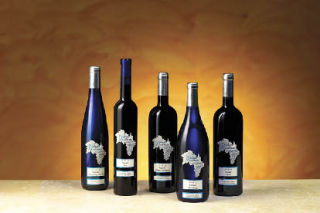The good thing about global warming, climate changes and high gas prices is that many people are now becoming aware of the need to conserve. I see more shoppers bringing reusable bags to the supermarket. The shuttle bus from the Mariners game last week was standing room only. I especially appreciated the bumper sticker on a hybrid car that said: “We drive this car for our grandchildren’s future.”
Many wineries have been quietly preserving the environment for years, both by conserving energy and being organic. Since grapes thrive during sunny days, wineries are located in warmer climates and many use solar panels for energy. Eastern Washington has wind farms — windmills generating electrical power.
In 1990, Badger Mountain was the first winery in Washington state to be certified organic. No herbicides, insecticides, pesticides or chemical fertilizers are used. The vineyards are monitored weekly for insects. The winery is focused on providing a good habitat for helpful insects. If the bad insects become too numerous, natural soap compounds are used instead of pesticides.
For fertilizer, the grape skins and seeds are composted. Cover crops of vetch and rye are grown between the vine rows for nitrogen and humus. Additionally, all natural blood meal and fish meal are added as needed. These natural, organic fertilizers are used instead of synthetic fertilizers.
Badger Mountain has partnered with local restaurants to collect waste oil that is converted to biodiesel right at the winery. The recovered fuel powers their tractors and trucks.
For people who are sensitive to sulfites, organic wines are best. No sulfites are ever added to stop fermentation. But keep in mind that sulfites occur naturally in grapes. While there are sulfites in organic wine, you can be confident that there are considerably less than in non-organic wine.
While an organic winery is fairly straightforward, not using pesticides or unnatural elements, there is another step up from organic. It is called biodynamic.
When I was looking for someone to explain biodynamic winemaking to me, I met Paul Dolan, a winemaker for Paul Dolan Winery and Parducci. Dolan was the winemaker at Fetzer Vineyards. He created Bonterra, Fetzer’s organic wine. If Dolan has an identifying motto, it is “sustainability.” He views the earth as a living organism that must be nourished and tended. Synthetic fertilizers, fungicides and insecticides lead to residual chemical buildup, toxins and soil depletion.
Dolan’s interest in environmental stewardship dates back to his early days as a winemaker. “I spent a lot of time in the vineyards. I had high hopes for one particular vineyard, but its grapes always seemed flat and insipid,” he said. “Three years after we converted that vineyard to organic methods, that same grape was good enough to go into one of our top wines.”
After nearly 30 years at Fetzer Vineyards, Dolan left to move on from organic to biodynamic winemaking. He had written “True To Our Roots,” about organic farming, and was ready to leave and “live the next chapter in the book of my life.”
Dolan and his partners bought Parducci, which became the first carbon neutral winery in the United States last year. The winery contacted the California Climate Action Registry to calculate its carbon dioxide emissions. Then it took measures to mitigate and offset those emissions. Parducci gets all its power from solar or wind power. The labels are treeless paper that is printed with soy ink. Biodiesel is used in company vehicles and farm equipment. All lights have been changed from incandescent to fluorescent.
Biodynamic farming may be considered the ultimate form of organic agriculture. Viewing the earth holistically, biodynamic farmers seek to heal the land by replacing harmful chemicals with natural products such as manure and vegetation. These farmers understand and use moon phases and planet positioning so that the earth can be mended and life can be improved and sustained. “These are not new theories,” explained Dolan. “For ages, farmers were practicing these concepts from viewing the world around them.”
Some practices are often considered bizarre or eccentric by some farmers. For instance, biodynamic farmers stuff manure into cow — not bull — horns. These horns are buried in the fall and dug up in the spring. One horn is good for 10 acres. The horns supposedly enhance the soil.
Organic food used to be viewed as extreme. Now, many people, especially parents, seek out organics to feed their families. Organic wines are becoming an important and growing percentage of the marketplace.
Dee Hitch can be reached at rockypointlane@aol.com.



